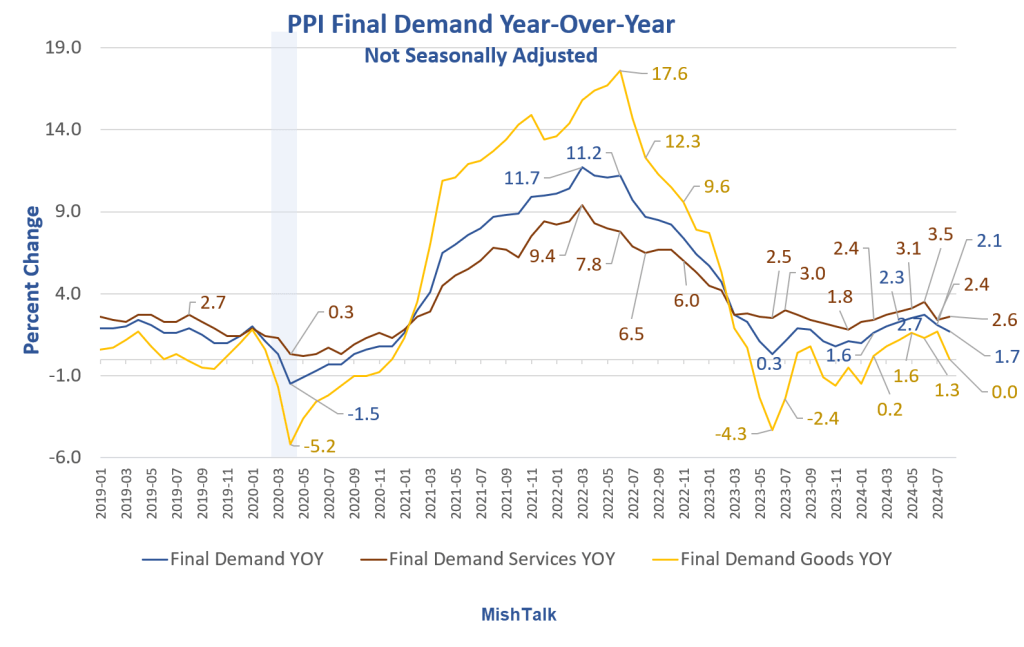The PPI rose 0.2 percent, in line with expectations. The BLS revised the July PPI lower to 0.1 percent.

The BLS report the Producer Price Index Rose 0.2 percent in August.
PPI Final Demand Key Detail Month-Over-Month
- PPI: +0.2 Percent
- Services: +0.4 percent
- Goods: +0.0 Percent
- Excluding Food and Energy: +0.1 Percent
- Food: +0.1 percent
Given the Fed’s focus on core PPI and CPI (excluding food and energy), this was a rate cut friendly PPI.
Yet, here is an amusing headline on Investing.Com: US stocks choppy following hotter-than-expected PPI reading
There is nothing hotter than expected about the report. The Bloomberg Econoday consensus was 0.2 percent month-over-month and 1.8 percent year-over-year.
The report delivered 0.2 percent M/M and a weaker than expected 1.7 percent Y/Y.
BLS Revisions
- The July PPI went from from 0.2 percent to 0.1 percent.
- The July PPI excluding food and energy went from 0.0 percent to -0.2 percent.
- Services went from -0.2 percent to -0.3 percent.
The report was not hotter than expected. Factoring in revisions, it was weaker than expected.
PPI Year-Over-Year

PPI Final Demand Year-Over-Year Details
- PPI: +1.7 Percent
- Goods: +0.0 Percent
- Services: +2.6 Percent
- Energy: -8.4 Percent
- Food: 2.3 Percent
- Excluding Food and Energy: 2.4 Percent
The Cost of Rent Up 0.4 Percent Again
Yesterday I commented The Cost of Rent Up 0.4 Percent Again, CPI Rises 0.2 Percent in August
I expected rent and OER to moderate. They didn’t. The CPI rose 0.2 percent month-over-month but fell to 2.5 percent year-over-year.
Final Thoughts
I think the Fed is generally pleased with those numbers. However, many of us would prefer 0.0 percent or lower.
There is no overall economic benefit to rising inflation. It’s counterproductive to most but benefits those with first access to money (the banks, government, and the wealthy).
Falling prices mean more goods and services for less money. That raises standards of living.
The Fed makes matters worse by constantly chasing its tale trying to reach 2.0 percent.
The non-asset holders have been royally screwed by the last three years of inflation and are very unlikely to recover what they lost. This will play into the election because it’s why people are mad.
Recession When?
Now is my answer. In case you missed it, please see The McKelvey Recession Indicator Triggered, But What Are the Odds?
Many eyes are on the McKelvey recession indicator. Too many? That would probably be the case if everyone believed it. Click above for details.
